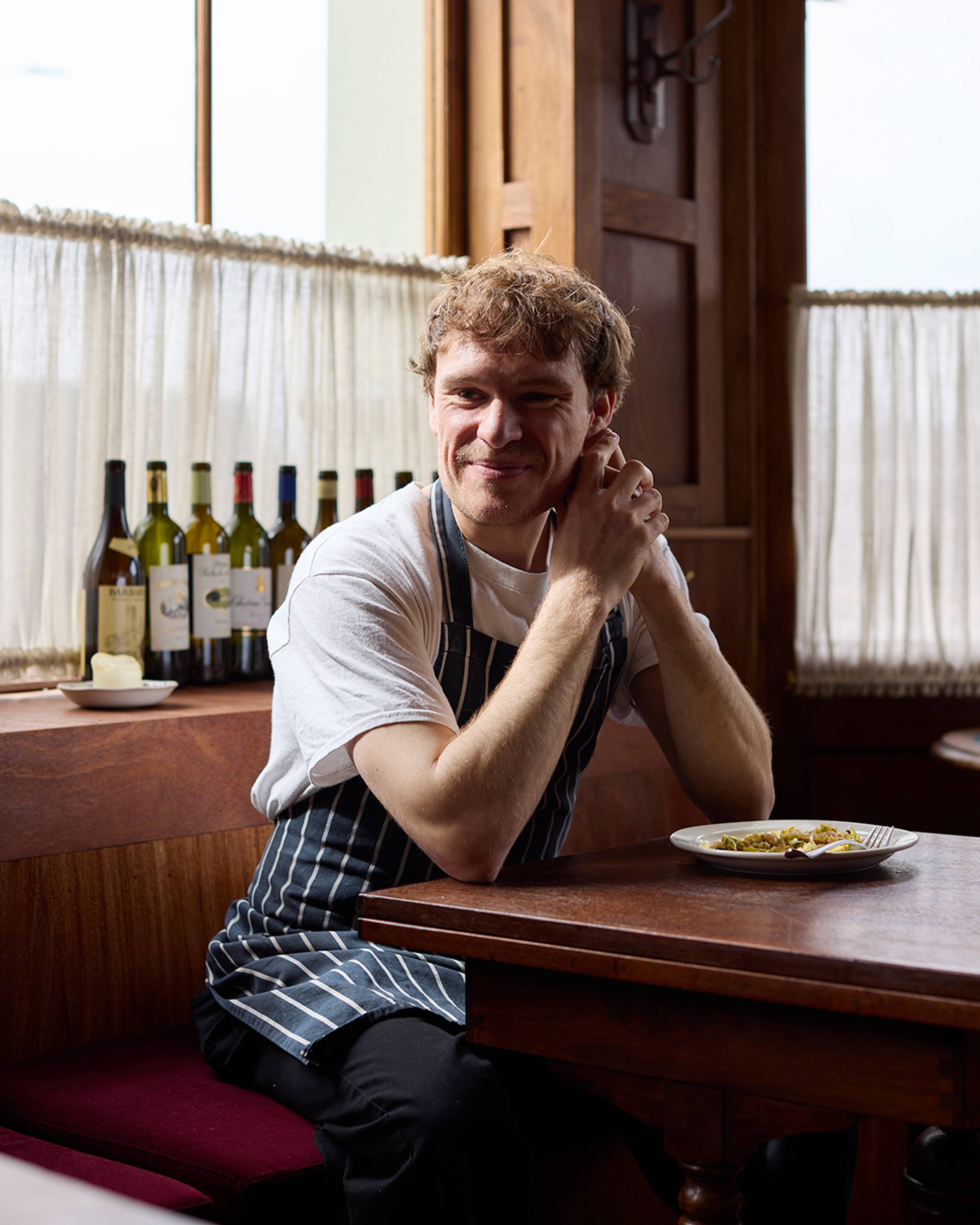Pick Diversity This British Apple Month
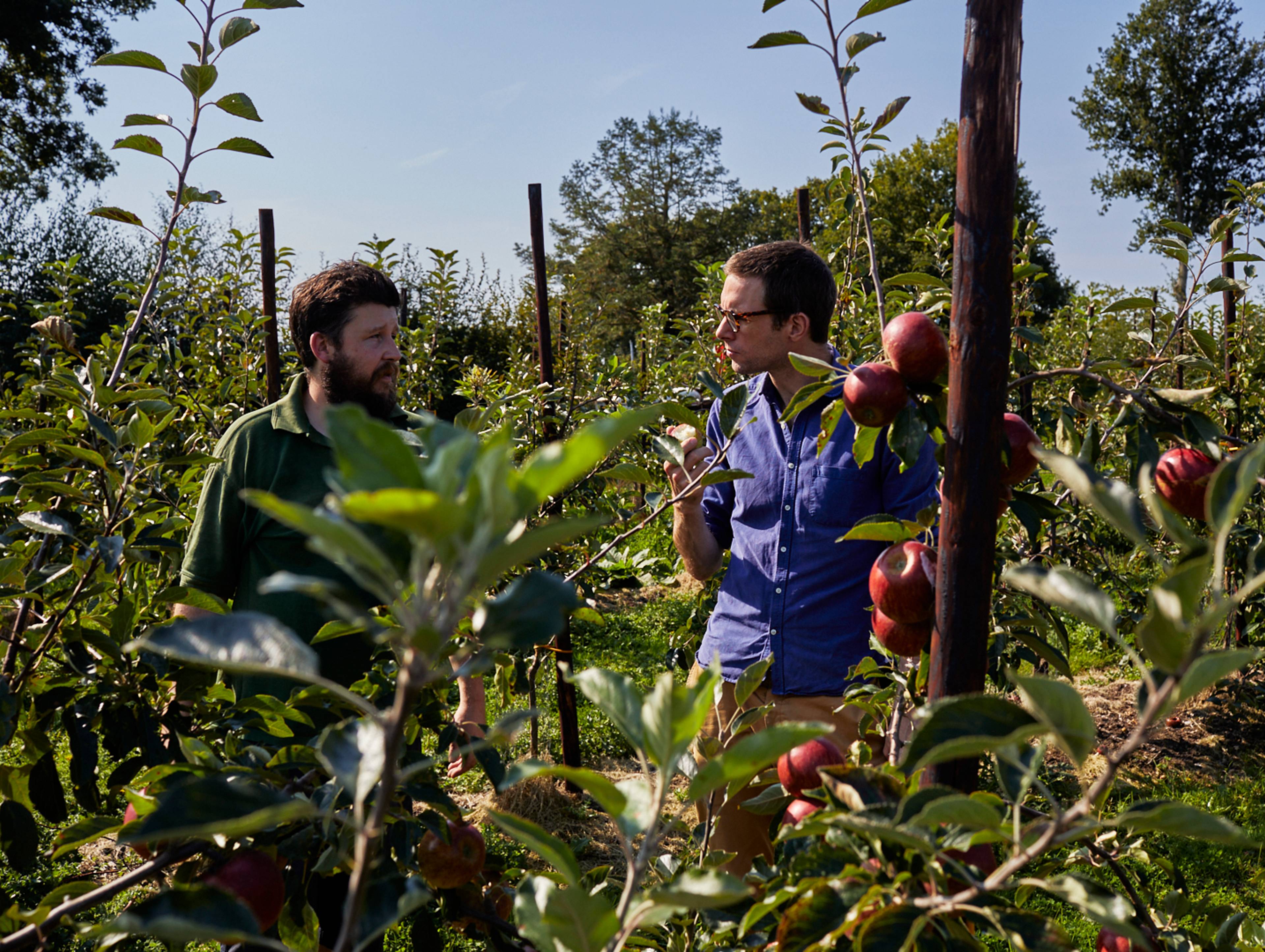
John in his apple orchard, Etchingham, East Sussex
“You could eat a different UK [apple] variety every day for over 6 years.”
The Orchard Project
In a supermarket, you will most likely find six to seven apple varieties. Gala, Braeburn, Golden Delicious, Granny Smith, Pink Lady and Jazz are six of the heavy cropping, uniform and branded club varieties that dominate. These are not the British varieties that are part of our cultural heritage.
This doesn’t need to be the case. Each pip in an apple is genetically unique. There is incredible diversity in apples, with over 7,000 varieties worldwide, 2,500 of which we developed in the UK. This diversity is not reflected today in our national diet.
FIND FLAVOUR IN BRITISH APPLES
Eating diverse apple varieties is the key to discovering incredibly unique profiles. This year, John is growing 46 apple varieties across 60 acres of land in the East Sussex High Weald. Find the dark mahogany colour and aniseed flavour of Ellison's Orange or the bright red to deep purple skins and aromatic, crisp flesh of Spartan (John's favourite). Plus, some varieties are early ripening, some are late. Some are great for storage, others are best straight from the branch. Variety means incredible seasonal British apples from September all the way through to May.
“It’s been a difficult growing season. We’ve had all the wrong weather in all the wrong orders.”
John, Etchingham, East Sussex
Last year was hot and dry meaning that British orchards produced lots of blossoms because of the brightness, but the buds didn’t have enough energy (or "oomph" as John puts it) for the blossom to set. In fact, only around 5% of all the flowers set in John’s orchards, meaning that this year he will have just 60% of his average crop. "It's been a tricky four years for growers in terms of growing conditions," John says.
FIND RESILIENCE IN DIVERSITY
Each apple variety thrives or reacts uniquely to different growing conditions. John explains that it's mainly been his young, new trees that have been impacted most by last year's hot, dry summer. Meanwhile, the Laxton's Fortune — "a pernickety variety" — has performed quite well. John muses that "the better the taste, the harder they were to grow."
As we face more extreme climate changes in the years to come, we'll need the kind of resilience that comes with diversity. We've worked with John and his family for 13 years, securing a market for whichever varieties are tasting the best. John has asked us which five to eight varieties we would like him to plant and grow for us: testament to the mutual trust and friendship that we have built.
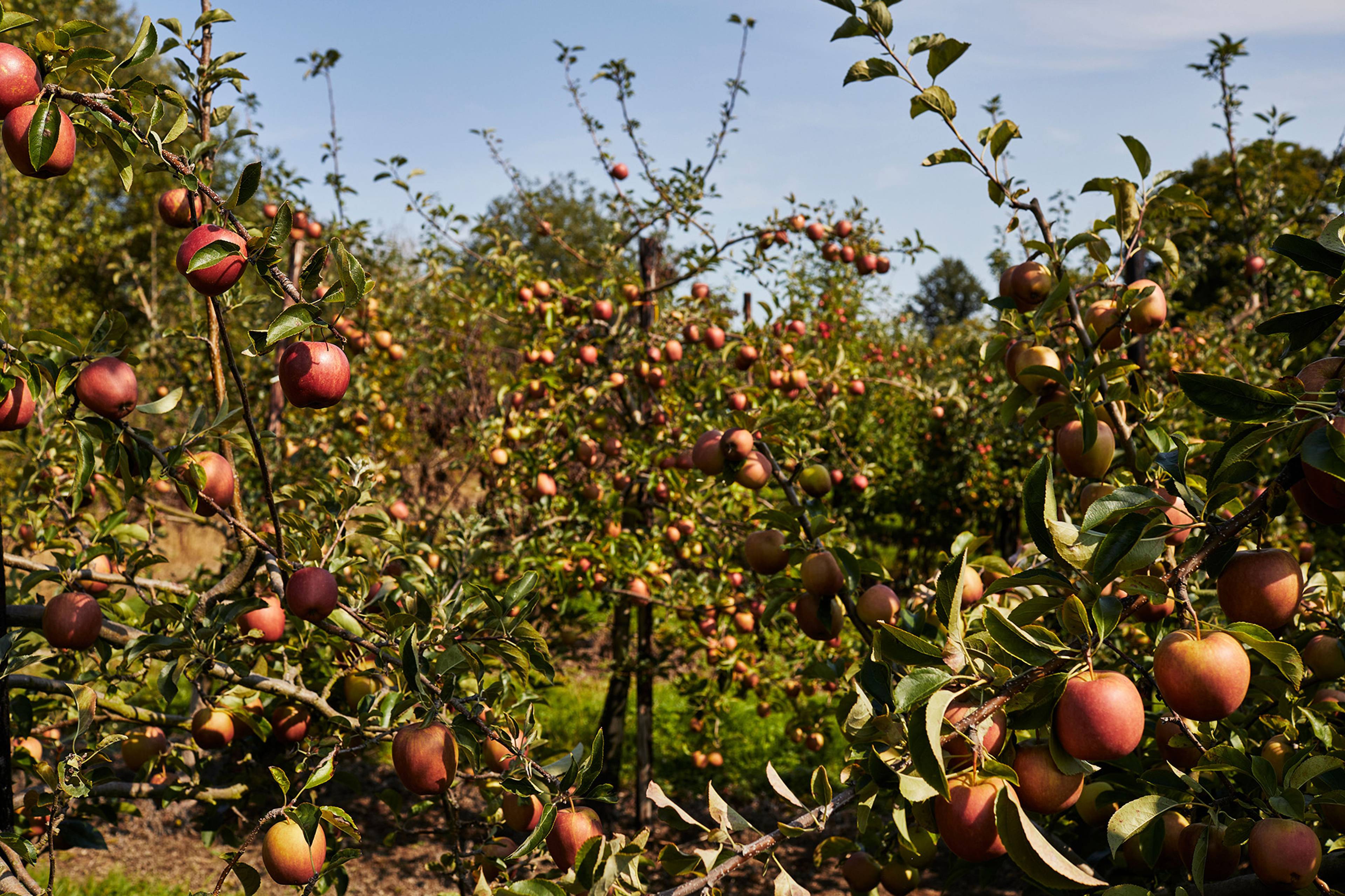
REVIVE BRITAIN'S APPLE GROWING TRADITIONS
“I have got so many friends that grow fruit that are considering giving up and grubbing out their orchards if the returns aren’t better this coming season. The current system just isn’t working across the industry. We will be ok because of the way that we work and have diversified over the years, but all of the mid-sized growers — who supply supermarkets — are facing an absolute nightmare of a season.”
JOHN, ETCHINGHAM, EAST SUSSEX
The UK has a rich history of apple cultivation, linked to its maritime climate. John tells us it’s not too hot, not too cold. Not too wet, not too dry. Mild days are followed by colder nights, which is the key to colouration. In short, the UK’s climate is perfect for apple growth. Today, this heritage is threatened.
“Our ambition is for at least 60% of apples sold in the UK to be British by 2030. Today, British apples represent less than 40% of all apples sold in the UK, despite being our national fruit.”
THE CURRENT SYSTEM ISN'T WORKING
Supermarket MONOPOLY
23% — INCREASED INPUT PRICES FOR GROWERS
17% — INCREASE IN SUPERMARKET PRICES ON APPLES
0.8% — INCREASE IN SUPERMARKET PAYMENTS TO GROWERS
Over the last year, growers have faced large cost increases for labour, storage, haulage, tree planting and orchard maintenance. Meanwhile, many supermarkets increase prices, but refuse to increase these back to the grower sufficient to cover production costs.
John tells us that this is part of a more systemic issue. The government has outsourced responsibility for fruit supply chain management to the supermarkets, meaning that they hold all the power. Growers become subject to the whims of buyers, have to cover the costs of offers or wastage, and are out-priced by cheap fruit from the continent, where apples that are too small for the domestic market still meet UK standards.
“Growers need certainty. The trees we plant this year, we ordered two years ago. They won’t come into full production for another five or six years. You won’t hit profitability until year 12 or 13. We’re taking massive risks and we need certainty, especially around seasonal labour.”
Ali Capper, Exec Chair of BAPL
What Can We Do?
1 - 1.5m — new apple trees planted every year
480,000 — new apple trees forecasted for 2023
330,000 — new apple trees ordered for 2023
Buying new trees means investing in an uncertain future. Many growers are left with no alternative but to grub out and rethink how they can use their land to better sustain them.
Collectively we have the power to build the right kind of demand to restore Britain's orchards and repair our broken relationship with apple growing. We asked John for his advice on how best to tackle the apple orchard crisis:
1. Go as direct to the grower as possible.
Ideally, this would mean buying from the orchard gate or your local greengrocers. Recognising that supermarkets might be the only option for some of us — especially in urban areas — he recommends choosing Sainsbury's (which goes over its quota to growers), Waitrose (who pay the best margin) and M&S (who pay their growers more fairly than other supermarkets.)
2. Wherever you shop, choose British.
Last year, supermarkets were able to buy cheap apples from France, where the fruit was too small for their domestic market but still adhered to UK standards. For many mid-sized British growers who relied on these revenue streams, this meant having to leave their apples to rot on the trees.
3. EAT MORE VARIETIES
Go beyond Braeburn. Look out for lesser-known British varieties with names like Lord Lambourne or Ashmeads Kernel. This is the key to keeping heritage varieties and exceptional profiles in play, plus giving growers the orchard diversity to better withstand climatic shocks and nurture biodiversity.
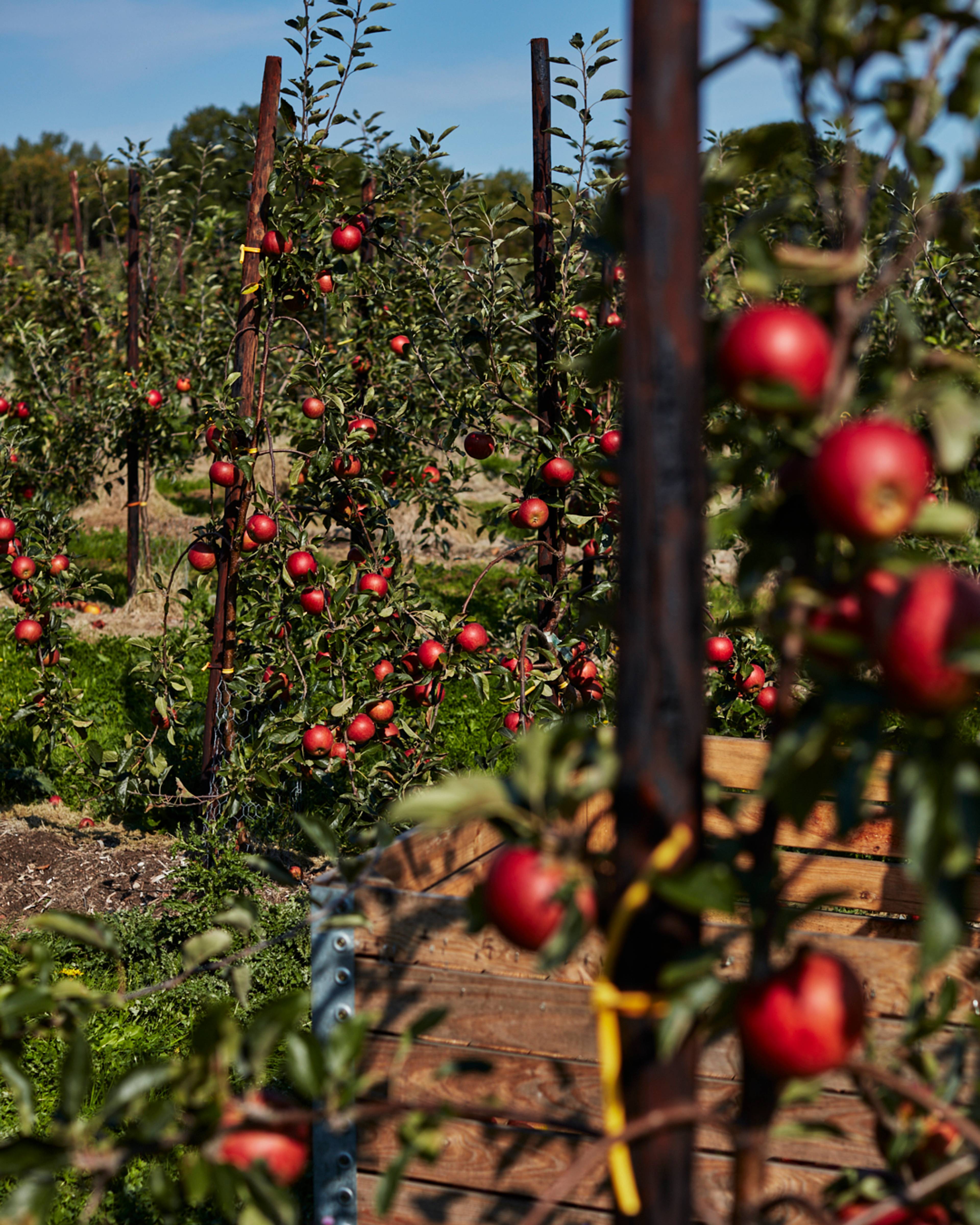
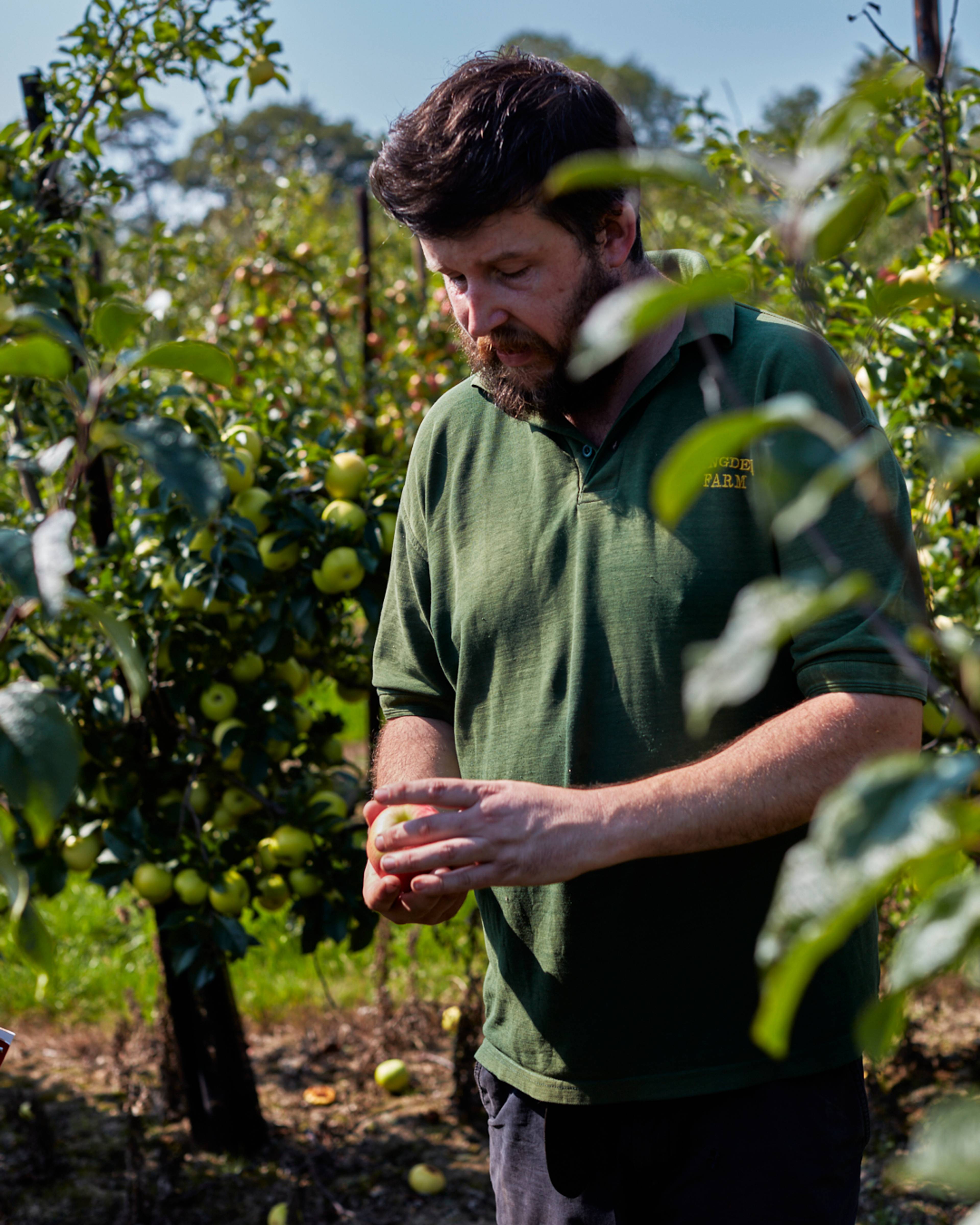
Stories
See allWe exist to fix the food system.
People are more cut off from the origins of their food than ever. This makes flavour, nutrition and farming practices that protect the planet, almost impossible to find.
By working directly with growers, we create a more sustainable way forward for farming. By giving everyone the tools to understand the power of our food choices, we empower everybody to become drivers of change.
Now is the time for action. Join the food system revolution.

Go beyond four seasons
Each fruit and vegetable has its own season, with subtle shifts which happen every day. Follow their microseasons to unlock flavour at every stage.
WHAT’S IN SEASON?

Know where your food comes from
We know the name of the people behind everything we source. Recognise their growing artistry to find out exactly where your food comes from (and why that matters).
MEET THE GROWERS

Make your diet diverse
Our growers work with varieties chosen for quality and nutrition, not yield. By selecting their crops you keep heritage seeds in play, add to ecosystem biodiversity and preserve unique flavours.
PEAK SEASON BOX
United Kingdom
© 2024 Natoora Ltd.

